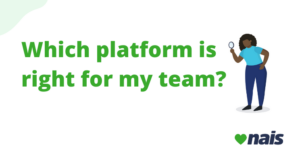What is positive psychology? And more importantly, why is it important for workplace dynamics? By the end of this article, you will understand the story behind positive psychology, the relationship between motivation and appreciation, and why it’s important.
Shall we begin?
The old 9-to-5 and bureaucratic work dynamics are long gone. Employees are no longer satisfied with filling out routine tasks for a company they hold no love for. The new generation of workers is passionate, driven, and above all – hold high expectations of the company culture. After all, employees spend half their day at our desks, might as well enjoy it.
This is where positive psychology steps in. Although it is relatively new, the studies and research behind it are astronomical and solidify the movement towards appreciative workplace dynamics.
Before you dive into this article, here’s a quick question.

When did you last receive appreciation from a manager, peer, or employee? What did they say…?
Have you got the memory? Great, now I want you to remember how that made you feel… Chances are, you felt great. You worked harder that day, were motivated, and felt appreciated and heard. Simply put, they fed your self-purpose.
The story and strength behind positive psychology.
First things first, positive psychology is:
“Positive psychology is a branch of psychology focused on the character strengths and behaviors that allow individuals to build a life of meaning and purpose—to move beyond surviving to flourish”.
The father of positive psychology is the American psychologist Martin Seligman. He coined the term in 1998, whilst being president of the American Psychological Association.

Here is the important part. Positive psychology is built on the humanist movement, which encourages strength in empathy, happiness, and wellbeing. Positive psychology builds on the theories of Abraham Maslow, infamously known for his work on the nature of human motivation.
Numerous studies demonstrate the benefits of positive psychology in the workplace. According to University of Pennyslvania , people want to lead meaningful and fulfilling lives to enhance their potential and experiences of love, work, and life. In essence, this translates into their work-life too.
What is the relationship between positive psychology and behaviour?
The relationship between positive psychology and behaviour is due to the innate individual need for self-purpose and recognition.
Appreciation has a snowball effect on workplace dynamics and productivity. Positive psychology focuses on employee strengths and happiness. As a result, the positive interactions generate a bond of strong teamwork, high productivity, and engaged employees.

Without hesitation, strong team dynamics generate higher productivity. As such, better business results and company culture.
In fact, studies found that engaged and appreciated teams report a 22% increase in profitability.
Remember how positive psychology is part of the humanist movement? I’d like to take the time to explain appreciation in the form of Maslow’s hierarchy of needs.
Maslow’s hierarchy of needs and appreciation.
As we can see above, the highest motivation is to achieve self-actualisation.
However, to reach psychological needs -the highest level, the rest of the physiological levels must be fulfilled. The lower levels, known as the physiological levels, come in the form of salary, benefits, and only fill half of an individual’s needs for engagement and motivation.
To achieve self-actualisation, psychological levels have to be met. As a result, this is where peer-to-peer appreciation, positive psychology, and appreciation step into gear.
The link between motivation and appreciation is clear. To be concise, appreciation feeds into an individual’s esteem and drives employees to accomplish their full self-actualisation.
In a business environment, employees with physiological needs (salary, safety, and security) are only halfway up the pyramid of work motivation. To motivate employees, leaders must be intentional and promote positive workplace dynamics, to achieve psychological elements of belonging and esteem.
Simply put, leaders motivate employees when they recognise and appreciate their strengths, value, and esteem. The continuous use of appreciation encourages employees and supports them to become perform better.
So, why is positive psychology important in the workplace?
Positive psychology is important in the workplace because it creates a sense of belonging, value, and need for employees in their organisation.
Although positive psychology is relatively new -especially in the workplace, studies have demonstrated the benefits it holds for company culture, team dynamics, communication, and productivity rates.

Moreover, holding an appealing workplace culture increases retention of quality employees, lowers employee turnover, and increases the values the company cares for in their organization.
Need some more convincing?
Here are some stats you should know:
- 74% of respondents say their colleagues would do a better job if managers relied more on moral authority over formal power ( World Ecomomic Forum, 2021)
- US$ 8.1 trillion a year, is the estimated loss the global economy suffers from loe employee engagement. Gallup (2021)
- 4x increase in revenue for companies that have strong company culture with mora leaders as researched by Forbes.
- 12x more likely for employees to leave their job if their leader does not show moral leadership and appreciation traits, research by the How institute.
In summary, positive psychology is founded on recognition and encouragement of the strengths of individuals. As a result, individuals feel heard, appreciated, and valued.
In essence, the motivation to receive constant esteem links to Maslow’s hierarchy of needs. Moreover, the link explains the drive engaged employees to outperform and exceed expectations.
Moreover, studies link positive psychology with higher productivity and business performance.
Attractive work dynamics are important for the retention of talent, as well as a factor applicants take into account when job hunting. Managers should take the step from boss to leader and develop people management skills that will lead their team to success.
Of course, implementing positive work dynamics can be intimidating. That is why Nais is here to help. We offer smart appreciation merged with analytics to track and measure a team’s engagement progress in an intuitive and easy-to-use platform.
We provide leaders of the next generation workforce with the platform they need for success. Our platform understands team dynamics, company culture, and strengths, and reports on real feedback and platform interactions.














